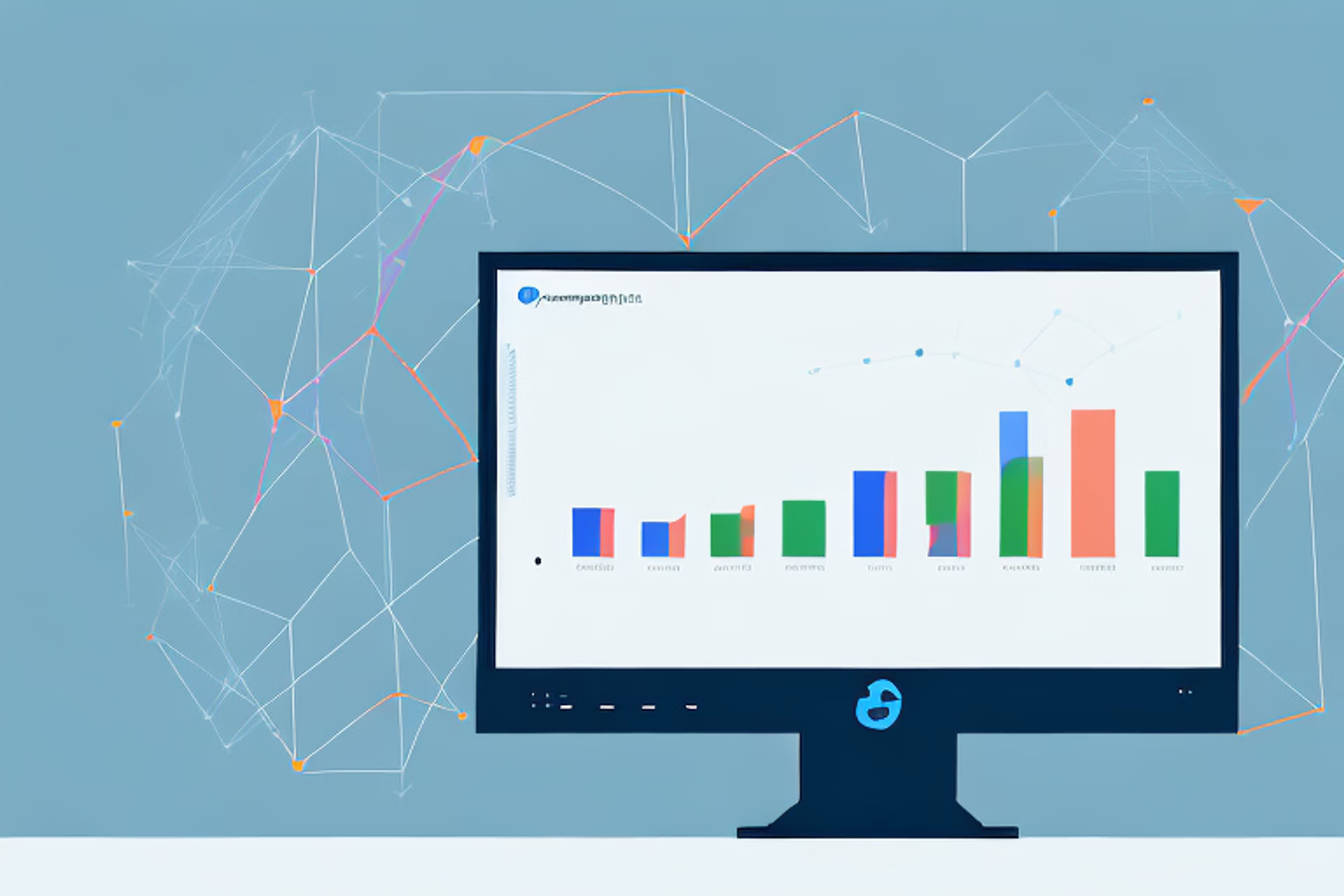Management Consulting vs. Data Analytics Consulting: Overview & Which One is Right for You
Discover the key differences between management consulting and data analytics consulting in this comprehensive side-by-side comparison.
Posted April 22, 2025

Stay in the loop. Go places.
Join 100,000+ others and receive free resources, exclusive event invites, and personalized support to reach your goals.
Table of Contents
In today's business world, organizations are increasingly relying on consulting firms to provide them with strategic guidance and data-driven insights. Two popular types of consulting firms are management consulting and data analytics consulting. Both these consulting approaches offer unique benefits to businesses, but they also differ in terms of their core principles, service offerings, and target audience.
Management Consulting and Data Analytics Consulting: The Basics
Management Consulting
Management consulting offers expert advice to help organizations boost their performance and tackle big challenges. These consultants assist companies in refining their operations, increasing profits, and using their resources wisely. They collaborate with clients to craft and put into action plans that lead to growth, innovation, and change.
Consultants evaluate processes and workflows to make operations smoother and more cost-effective. They also guide businesses through complicated regulatory landscapes and devise strategies to reduce risks.
Read: Five Tips to Break Into Management Consulting
Data Consulting
Data analytics consulting helps businesses use their data to achieve better results. This involves using statistical methods and predictive modeling to understand business data and provide insights for informed decision-making. Consultants in this field assist companies in unlocking the potential of their data, creating products based on data, and implementing solutions to boost their performance.
In today's world, where data is everywhere, it's crucial for businesses to interpret the data they gather effectively. Data analytics consultants play a key role in this process. They guide businesses in forming strategies based on data to enhance decision-making. Additionally, by examining market trends and customer behavior, they can uncover new opportunities for growth and innovation.
Read: How to Succeed in a Consulting Career–an Expert Coach’s Guide
Similarities & Differences of Management Consulting and Data Analytics Consulting
Differences
- Focus: Management consulting is more focused on strategy and operations, while data analytics consulting is more focused on data insights and implementation.
- Clients: Management consultants typically work with the top leadership of an organization, while data analytics consultants work more closely with IT and data teams.
- Approach: Management consultants typically rely on industry experience, intuition, and client feedback to develop strategic recommendations. Data analytics consultants, on the other hand, use data-driven insights to identify factors that affect business performance.
Similarities
- Objective: Both aim to enhance the performance and efficiency of organizations. While management consulting focuses broadly on operations, profitability, and strategy, data analytics consulting zeroes in on leveraging data for decision-making and operational improvements.
- Organizational Impact: They both play crucial roles in helping businesses make informed strategic decisions. Management consultants might offer advice on overall strategy and operations, whereas data analytics consultants provide insights driven by data analysis to inform those strategies.
- Problem-Solving: Each type of consulting addresses specific challenges within an organization. Management consultants might tackle operational or strategic issues, while data analytics consultants solve problems related to data usage, interpretation, and value extraction.
- Use of Data & Analysis: Although data analytics consulting is inherently focused on data, management consulting also relies on data analysis to understand business processes, identify inefficiencies, and recommend improvements.
- Facilitating Change: Both types of consultants assist organizations in navigating change—whether it's through implementing new technologies, entering new markets, or optimizing existing processes. Data analytics consulting often underpins innovation by identifying data-driven opportunities.
- Solutions: Management and data analytics consultants tailor their recommendations to meet the unique needs of each client, drawing on best practices, industry insights, and analytical findings to offer personalized advice.
While management consulting and data analytics consulting have their differences, they can also complement each other. For example, a management consultant may identify a strategic issue within an organization, while a data analytics consultant can use data insights to provide a more detailed understanding of the issue and potential solutions. By working together, these two consulting approaches may be able to provide a more comprehensive solution that improves business performance.
The Top Firms
If you’re deciding between these two career paths–or are looking for a consultant to help with your business–it’s helpful to understand who the key players are. Here are the top management consulting and data analytics firms.
Management Consulting Firms
Most of these firms have been around for a long time and have billions of dollars in revenue. Others, like EY Parthenon, are the consulting arm of a broader organization. Also, while MBB (McKinsey, BCG, Bain) is primarily focused on management and strategy consulting, some of these other firms offer consulting services for other areas as well.
Read: A Comprehensive Guide to McKinsey & Co., Boston Consulting Group, and Bain & Co. and A Day in the Life of a McKinsey Management Consultant
Data Analytics Firms
Like the management consulting firms, a lot of these firms offer other kinds of consulting in addition to Data Analytics, but offer specific Data-related services.
Key Skills Required for Management & Data Analytics Consulting
Many of the skills required for management and data analytics consulting overlap, though some are unique to each. Both types of consultants should be skilled in the following: analytics and problem-solving, strategic thinking, critical thinking, project management, and attention to detail.
Management consultants, specifically, should have these other skills as well: presentation, leadership and team management, adaptability, business/financial acumen, creativity, networking, time management, and industry-specific knowledge.
More tactically, they need to be proficient in:
- Making PowerPoint presentations
- Excel modeling
- Business writing
- Stakeholder engagement
- Project management tools
Data analytics consultants, on the other hand, need more technical skills, including but not limited to: statistical analysis/math, data analytics software and tools (SQL, R, Python), data visualization and reporting (Tableau, Power BI), machine learning/predictive modeling, data storytelling, data cleaning and preparation, and knowledge of data privacy.
Once again, more tactically this means they need to be proficient in:
- Data visualization software
- Programming languages
- Database querying
- Data cleaning and reprocessing
- Advanced Excel
Deciding Between Management Consulting or Data Analytics Consulting
Both career paths have their merits and drawbacks. To decide which one is right for you, we recommend thinking about what you enjoy doing, what your long-term goals are, and where your skills lie.
Here is one way to think about your options. To talk to an expert and get advice based on your personalized background and goals, we highly recommend talking to an expert.
Management consulting may be the best fit for you if…
- You excel at strategic thinking and enjoy solving complex business problems.
- You have strong interpersonal skills and thrive in client-facing roles.
- You are skilled in creating persuasive PowerPoint presentations and reports.
- You have a knack for understanding and improving business processes and operations.
- You are interested in a broad range of industries and organizational functions.
- You enjoy working in a dynamic environment with the opportunity to influence senior management and drive organizational change.
- You have strong project management skills and can lead projects from conception to implementation.
- You are adaptable and can quickly understand new business models and strategies.
- You prefer working on a variety of projects with cross-functional teams.
- You are looking for a career that offers a balance of analytical work, client interaction, and strategic planning.
Data analytics consulting might be the best fit for you if…
- You have a strong foundation in statistics, mathematics, or computer science.
- You are proficient in programming languages like Python or R for data analysis.
- You enjoy digging into data to uncover insights and tell stories through data visualization tools like Tableau or Power BI.
- You are passionate about leveraging data to solve business problems and drive decision-making.
- You have a keen eye for detail and a commitment to accuracy in your work.
- You are interested in predictive modeling, machine learning, and using data to forecast trends.
- You prefer a more specialized role that focuses on data rather than broader business strategy.
- You enjoy the technical aspects of data management, including cleaning, processing, and analyzing large datasets.
- You are comfortable working behind the scenes to support business objectives through data insights.
- You seek a career where you can continuously learn and apply new technologies and data analysis methodologies.
As mentioned above, whether to pursue a career in management consulting or data analytics consulting boils down to understanding your own strengths and interests. If the former include strategic thinking, exceptional communication skills, and a knack for leading diverse projects, then steering your career toward management consulting might be the best move. However, if you find yourself fascinated by numbers, have a solid grounding in statistical analysis, and relish the idea of uncovering insights through data, then data analytics consulting could offer a more fulfilling career path.
Each field offers distinct experiences and challenges, tailored to different skill sets and personal preferences. Reflect on what gets you excited about work: Is it the prospect of driving strategic decisions at a high level, or do you prefer the satisfaction that comes from solving complex problems with hard data? The choice between these two paths is not just about the skills you have; it's about where you see yourself making the biggest impact and what type of work will keep you engaged and motivated over the long term.

















